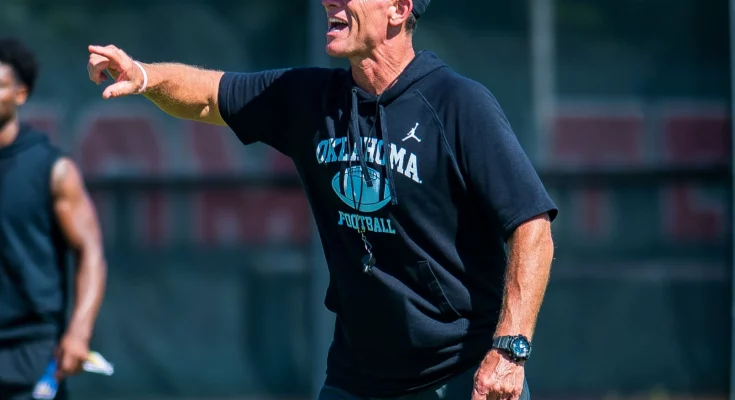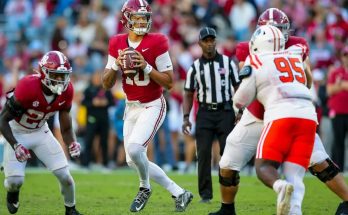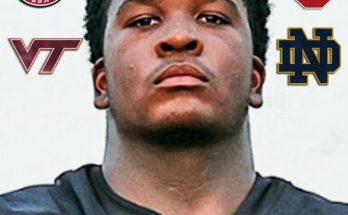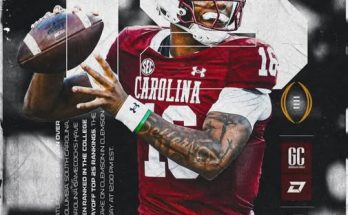The University of Oklahoma made a significant announcement that is already stirring interest across the college athletics landscape: the institution has officially retained The Athlete Group, a nationally recognized executive search firm, to spearhead its nationwide search for the next athletic director. This decision marks a pivotal moment for OU as it navigates a critical leadership transition at the helm of its storied athletic department. The move reflects the university’s commitment to not only maintaining its prestigious legacy in collegiate sports but also positioning itself for long-term success as it prepares to enter a new era.
With OU set to compete as a full-time member of the Southeastern Conference (SEC), the stakes for finding a visionary and strategic leader have never been higher. The university is well aware that this transition comes at a moment of significant transformation in college athletics. The shifting dynamics of Name, Image, and Likeness (NIL), conference realignment, evolving NCAA regulations, and the intensifying arms race in facilities and fundraising are all converging to create an environment that demands both innovative thinking and steady leadership. By bringing in The Athlete Group, OU has taken a proactive and calculated step toward ensuring that it secures a leader who is not only capable of managing these pressures but also thriving within them.
The Athlete Group is no stranger to high-profile searches. The firm has built a strong reputation for helping universities across the country identify and secure top-tier athletic administrators, head coaches, and executives. Known for its meticulous process, broad network, and proven track record, The Athlete Group is expected to apply a rigorous and inclusive search strategy that will involve stakeholders from across the OU community. Their role will be to work closely with university leadership to build a candidate profile that reflects OU’s values, priorities, and vision for the future of its athletic programs.
The university’s decision to engage The Athlete Group reflects an understanding that this hire is not just about filling a vacancy—it’s about shaping the future of an athletic department that has been integral to OU’s identity for decades. From football to softball, basketball to gymnastics, the Sooners have consistently competed at the highest levels. The next athletic director will be tasked with preserving this tradition of excellence while also guiding the department through a rapidly evolving college sports environment. That includes managing complex budgets, cultivating donor relationships, enhancing student-athlete support services, and expanding the school’s national brand.
OU President Joseph Harroz Jr. emphasized the importance of finding the right fit during this transformative time. He expressed confidence in The Athlete Group’s ability to deliver a pool of elite candidates who not only have the required experience and credentials but also embody the leadership qualities necessary to align with OU’s mission. The university wants a leader who will not only inspire competitive excellence across all sports but will also uphold the academic integrity, compliance standards, and community values that are central to the OU experience.
The process is expected to be thorough and deliberate, with no artificial timeline imposed on the search. While the university understands the urgency of the hire given the pressures and opportunities that lie ahead, officials are prioritizing getting the decision right over getting it done quickly. Interim leadership will continue to ensure operational continuity during the search period, and internal candidates will not be excluded from consideration. The university has made it clear that the best candidate—whether internal or external, familiar or new—will emerge based on merit, vision, and alignment with OU’s strategic goals.
What makes this search particularly consequential is the convergence of tradition and transformation at OU. On one hand, the athletic department is steeped in a rich history of success and pride, having produced national champions, Olympic athletes, and Heisman winners. On the other hand, the move to the SEC introduces new competitive dynamics that will test the department’s infrastructure, recruiting pipelines, and strategic planning. The next athletic director must honor the legacy while also being bold enough to embrace change and innovation. That includes building stronger NIL support frameworks, enhancing digital engagement with fans and recruits, and leading facility upgrades that keep pace with SEC peers.
The NIL era, in particular, is reshaping how universities manage their athletic departments. Schools across the country are developing strategies to better support athletes in monetizing their name, image, and likeness. At OU, the new athletic director will be expected to take a hands-on role in building NIL collectives, educating student-athletes, and ensuring compliance with state and federal guidelines. This aspect of the job will require both legal and financial acumen, as well as a collaborative mindset capable of uniting boosters, alumni, university leadership, and outside partners toward a shared vision.
Additionally, the new AD will need to navigate the growing complexity of student-athlete welfare. Mental health support, academic resources, and life-skills development are no longer secondary concerns—they are central to the student-athlete experience and success. The leader OU ultimately selects will be someone who places a high priority on athlete development both on and off the field. They must be a champion for holistic growth, someone who ensures that the university remains competitive not only in championships but in graduation rates, career readiness, and personal development.
Fundraising will also be a central component of the next athletic director’s role. With the SEC transition demanding additional investment in infrastructure and staffing, the university will be looking for a proven fundraiser—someone who can build relationships with high-level donors, corporate partners, and alumni. Strategic capital campaigns will be crucial, especially if OU aims to expand its facilities or launch new initiatives aimed at enhancing competitive balance in the SEC. The candidate must possess the charisma, integrity, and strategic vision to galvanize the financial support needed to meet those goals.
The decision to bring in The Athlete Group also sends a signal to the broader college sports community that OU is thinking big. This isn’t a quiet, internal hire. This is a national search being led by a firm with access to the top minds in athletics administration. It’s a statement that OU is ready to compete not just on the field, but also in the boardroom and at the leadership level. That kind of ambition is critical if the university wants to remain among the elite programs in the country in the years to come.
One of the biggest questions now is what type of candidate will emerge from the search process. Will OU lean toward a sitting athletic director from a peer institution in a Power Five conference? Could it consider a rising star with deep ties to NIL strategy or the private sector? Might it explore hiring a former coach with administrative experience, or a university insider who understands the intricacies of OU’s athletic culture? The possibilities are open, and The Athlete Group’s job will be to cast a wide net and then help university officials sift through the best of the best.
The ripple effects of this hire will likely be felt for decades. Leadership transitions in college athletics often set the tone for the next generation of competitiveness, culture, and brand development. The right hire could propel OU into a new echelon of national dominance. The wrong one could lead to stagnation, missed opportunities, and a loss of relevance in an increasingly competitive landscape. That is why the gravity of this decision cannot be overstated, and why so many eyes across the country are watching with interest.
As of now, the timeline remains fluid. The university has not provided a specific date by which the hire will be completed, though officials have signaled that they expect meaningful progress within the coming months. Stakeholders across the university—including student-athletes, coaches, faculty, alumni, and donors—will likely have an opportunity to contribute to the process in meaningful ways, even if not formally. Transparency, inclusion, and communication will be key pillars as OU works with The Athlete Group to complete what many are calling one of the most important athletic director searches in the school’s modern history.
Ultimately, OU’s decision to partner with The Athlete Group reflects a deep understanding of the moment. This is more than a hire—it’s a defining act of leadership in an era that is redefining college sports. The next athletic director will be tasked with leading not only a collection of teams, but a movement toward the future of what it means to be a Sooner in the world of elite collegiate athletics. With the right choice, Oklahoma can not only sustain its legacy—it can build a future even brighter than its storied past.



